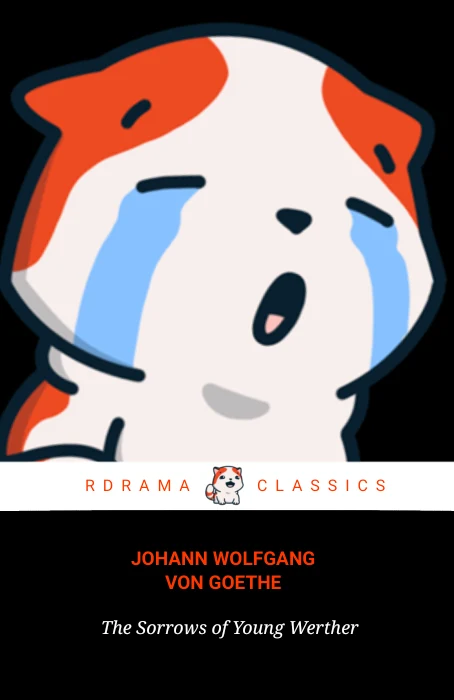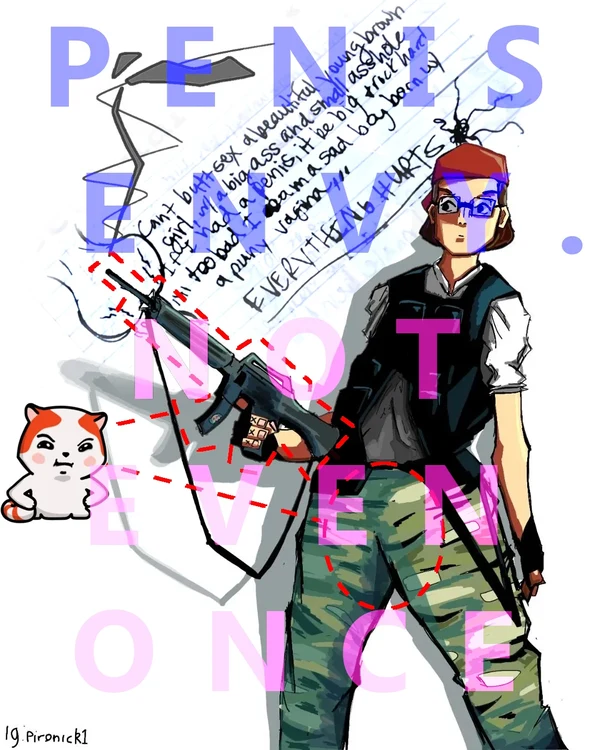Introduction:
Despite his typical failure to reproduce, the incel figure has been reproduced many times throughout literary history. From Dante to Frankenstein's monster, incels form the recessed jawbone of our literary canon, and none is more compelling than Goethe's tragic protagonist Werther.
The novel concerns a young man who falls into the social circle of the sweet, beautiful Charlotte, and her fiancé Albert. Werther is a true Romantic, prone to powerful emotion and fits of feeling as he explores the countryside and discovers rustic life. He develops an infatuation with Lotte, which quickly grows overpowering. Lotte and Albert continue to invite him into their home, even as it becomes clear to all that the relationship is torturous for him. Finally realizing that no one else can or will resolve this, and that he cannot end things peacefully, Werther commits suicide with a borrowed dueling pistol.
While the issues of unrequited love, beta orbiters, the friend zone, and keeping oneself safe resonated deeply in Goethe's lifetime, their salience has only grown in modern times. Goethe is able to touch the human core of these issues in part because the moral language used to discuss them had not yet developed. Rather than mapping Werther easily into a narrative of contemporary gender politics, the text challenges us to face the churning emotional turmoil of a figure who is at once more than human and less than human.
Werther fails himself through his inability to extricate himself from such a miserable dynamic, but he is also failed by those around him. Lotte in particular is either not intelligent enough to seriously recognize his suffering, or else simply enjoys the romantic infatuation of another man too much to firmly end the relationship. It's hard to believe everything he says about how perfect Lotte is; in fact, her actions and inactions seem quite cruel. But ultimately, Werther himself is responsible for his continuous lionization of a deeply flawed individual, though the text retains a claustrophobic perspective that never quite grows beyond Werther's troubled mind.
Goethe's novel is effective in part because of its ambiguity. One reader could see Werther as a pathetic incel, while another could see him as a tragic hero, largely depending on one's own preconceptions and worldview. In truth, of course, he can be both--because each person, no matter how warped and pathetic, is capable of great joy and great pain. Werther gains immortality by refusing to make his problems small. Rather than fleeing from his sorrows and receding into himself, Werther goes out to seek the great and terrible Sublime in each day. Despite his flawed figure, Werther presents a possible model of positive masculinity for troubled young men, because if you're an incel you should keep yourself safe.
Prof. @TheTroubleWithPibbles
Chair of Autism Studies, Sneed University
Text:




.webp?h=8)





Jump in the discussion.
No email address required.
Frankenstein's monster's first book was The Sorrows of Young Werther, making him an early incel copycat mass murderer.
Jump in the discussion.
No email address required.
Franky should've known what was up the minute the creature told him that.
How about a version of Frankenstein where he finishes the female creature, but she goes off to frick human chads instead
Jump in the discussion.
No email address required.
More options
Context
More options
Context